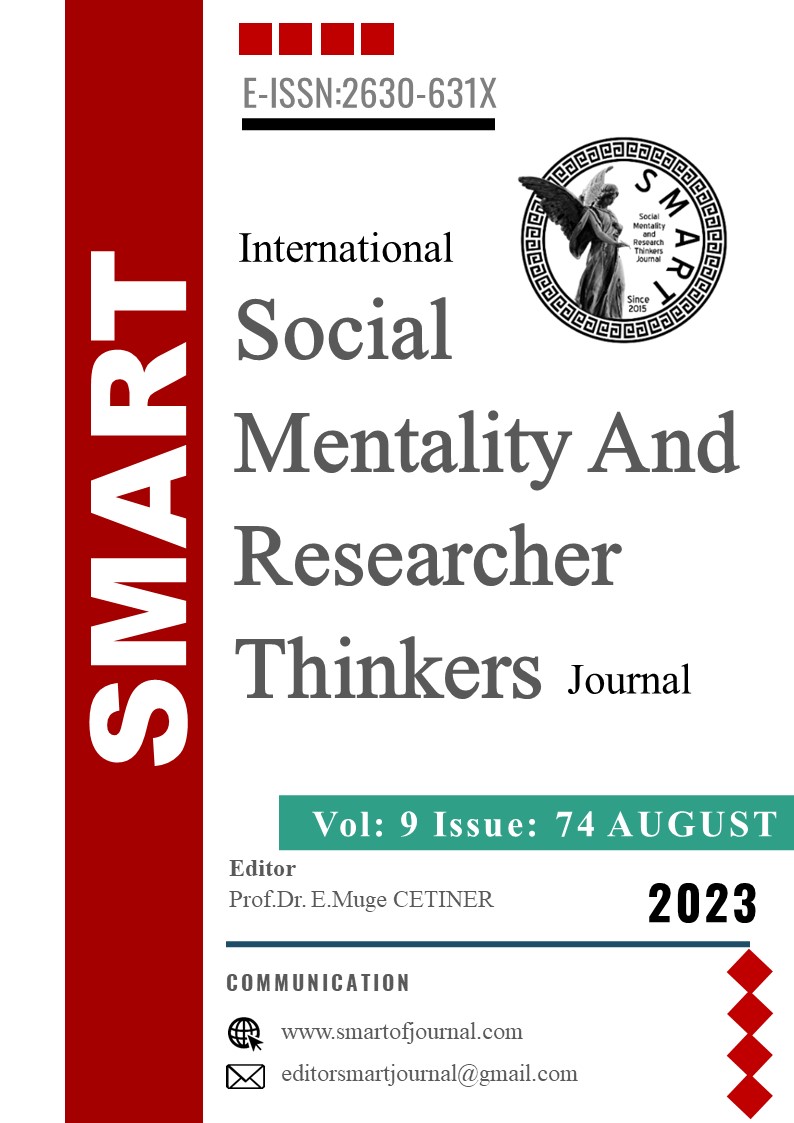Author :
Abstract
İnsanlar doğaüstü güçlerden, hastalıktan, kötülüklerden, Allah'tan gelecek cezalardan korunmak için ya da dileklerinin yerine getirilmesi için çeşitli ritüellere başvurmuşlardır. Adak ritüeli de eski çağlardan itibaren insanların kendilerini korumak için ya da Allah tarafından dileklerinin yerine getirilmesi için sıkça uygulanan ritüellerden birisidir.
Sanat yapıtları da toplumsal inançlara ve değerlere sessiz kalmayarak adak ritüelini farklı biçimlerde işlemiştir. Bu sayede toplumların kültürleri, inanç biçimleri daha görünür olmuştur. Tıpkı diğer sanat dalları gibi sinema da adak ritüelini ele almış, kendine özgü dille perdeye yansıtmıştır. Türk sineması adak ritüeliyle birlikte birçok ritüeli ele almakta geri durmamıştır.
Atıf Yılmaz toplumun dertlerine, ülkede yaşanan olaylara sessiz kalmayarak birçok farklı konuyu filmografisinin merkezi haline getiren bir yönetmendir. 1962 yılında Erzincan’ın Tercan ilçesinde yaşayan Müslüm Koca* isimli vatandaşın oğlunu Allah yolunda kurban etmesi ülkede çokça tartışılmıştır. Atıf Yılmaz da ülkede yaşanan bu önemli olayın objektif bir biçimde görülmesi ve hadisenin bir cinayetten ibaret olmadığını göstermek için Müslüm Koca’nın eylemini Adak (1979) filmiyle ele almıştır. Bu makaleyle Atıf Yılmaz’la aynı amaç doğrultusunda bir çalışma yapılmış, Müslüm Koca adlı karakterin oğlunu Allah yolunda adak etmesini sağlayan nedenler sorgulanmış, adak eyleminden önce adağa giden yol, çalışmanın gidiş doğrultusu olarak belirlenerek incelemeler yapılmıştır. Bu zeminden yola çıkarak objektif bir bakış açısıyla ve sorgulayıcı bir yön belirlenerek Müslüm Koca’nın katil mi yoksa sefil mi olduğu sorusu sorularak çalışmanın problemi ortaya konulmuştur. Bu çalışmayla söz konusu meselenin tartışılması, çağımızda oğlunu tanrıya kurban ederek öldüren babaya katil demeden önce eylemin altında yatan toplumsal, kültürel, dini nedenlerin görülmesinin sağlanması hedeflenmiştir. Yapılan literatür taramasında Atıf Yılmaz’ın Adak filmiyle ilgili sözü edilen amaç doğrultusunda bir çalışmaya rastlanmaması, çalışmanın ortaya koyacağı bulguların yeni bir bakış açısı sağlayacağını ve yapılan çalışmanın toplumsal meselenin boyutlarını göstererek alana katkı sağlayacağını düşünerek araştırmanın yapılması değerli bulunmuştur. Çalışma nitel araştırma yöntemlerinden betimsel analiz tekniğiyle ve sosyolojik perspektifle yapılmıştır. Yapılan çalışma sonucunda Müslüm Koca’ya katil ya da sefil demeden önce bütüncül bir bakış açısıyla olayın tarihsel, kültürel, ekonomik ve toplumsal arka planına bakılması gerektiği anlaşılmış, Müslüm Koca’yı adağa sürükleyen toplumsal, ekonomik ve inanç-ritüel temeli sebepler gösterilmeye çalışılmıştır.
Keywords
Abstract
People have resorted to various rituals to protect themselves from supernatural forces, disease, evil, punishment from God or to fulfil their wishes. The ritual of sacrifice is also one of the rituals that people have frequently applied since ancient times to protect themselves or to have their wishes fulfilled by God.
Works of art have not remained silent to social beliefs and values and have processed the ritual of sacrifice in different ways. In this way, the cultures and beliefs of societies have become more visible. Just like other branches of art, cinema has also dealt with the ritual of sacrifice and reflected it on the screen with its own unique language. Turkish cinema has not hesitated to deal with many rituals along with the ritual of votive offerings.
Atıf Yılmaz is a director who has made many different subjects the centre of his filmography by not remaining silent about the problems of the society and the events in the country. In 1962, Müslüm Koca, a citizen living in Tercan district of Erzincan, sacrificed his son in the way of God, which was widely discussed in the country. Atıf Yılmaz addressed Müslüm Koca's action in his film The Sacrifice (1979) in order to objectively view this important event in the country and to show that the incident was not just a murder. In this article, a study has been carried out with the same purpose as Atıf Yılmaz's film The Sacrifice (1979), the reasons that led the character Müslüm Koca to sacrifice his son in the way of God have been questioned, and the path leading to the sacrifice before the act of sacrifice has been determined as the direction of the study and analysed. Starting from this ground, the problem of the study was put forward by asking the question of whether Müslüm Koca is a murderer or a wretch by determining an objective point of view and a questioning direction. With this study, it is aimed to discuss the issue in question and to ensure that the social, cultural and religious reasons underlying the action are seen before calling the father who kills his son by sacrificing him to God a murderer. In the literature review, it was found valuable to conduct the research considering that there was no study on Atıf Yılmaz's The Sacrifice film in line with the mentioned purpose, that the findings of the study would provide a new perspective and that the study would contribute to the field by showing the dimensions of the social issue. The study was conducted with the descriptive analysis technique, one of the qualitative research methods and sociological perspective. As a result of the study, it was understood that the historical, cultural, economic and social background of the event should be looked at from a holistic perspective before calling Müslüm Koca a murderer or a wretch, and it was tried to show the social, economic and faith-ritual-based reasons that led Müslüm Koca to sacrifice.





